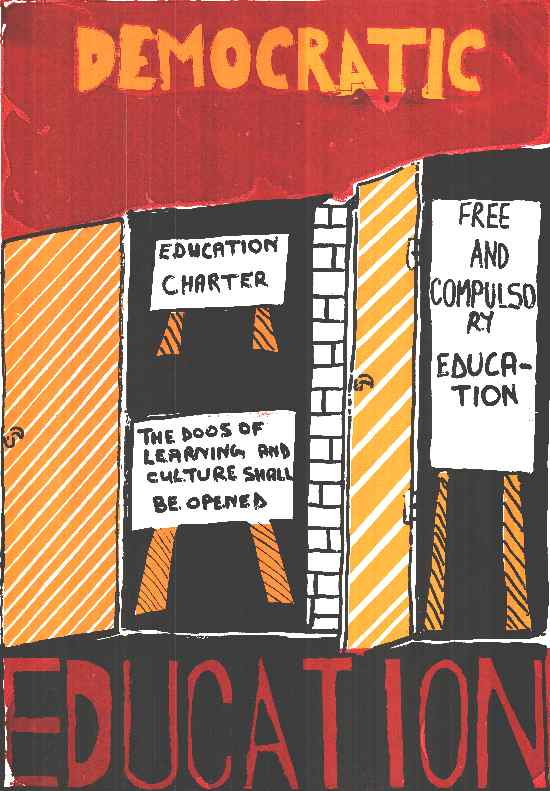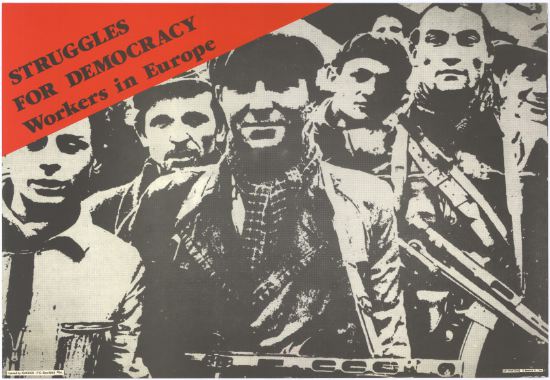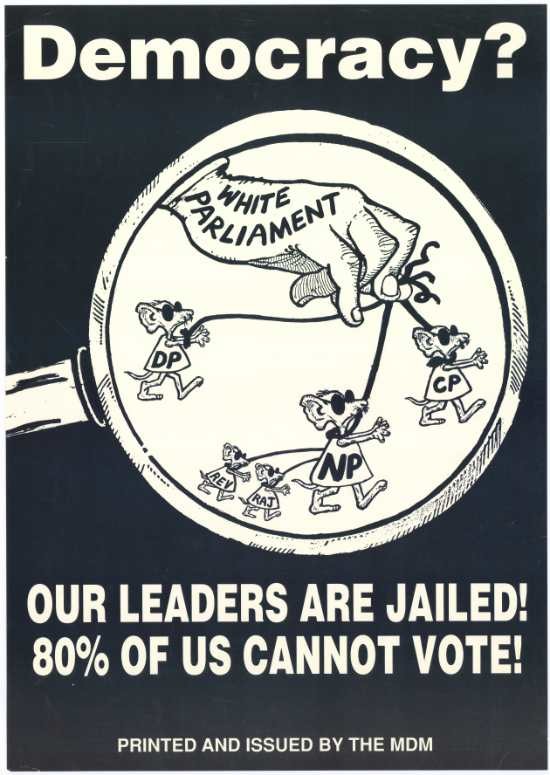|
15 September 2010
Equal knowledge for equal power: International Day of Democracy 2010

"Democracy is the only system that persists in asking the powers that be whether they are the powers that ought to be."
-Sydney J. Harris
This year is the third worldwide celebration of the International Day of Democracy on 15 September. Through its Freedom of Information Programme (FOIP), SAHA is currently engaged in civil sector-wide efforts to oppose the Protection of Information Bill, which would impinge on the notion of transparency as a fundamental element of democratic governance.
After all, democracy implies a system that is governed by its people through elected representation. Since all citizens of a country are thus theoretically included in the power system, all are equal before the law and have equal access to power. Restriction of access to information qualifies as a way of reserving knowledge from the public domain. In this sense, knowledge may be viewed as a form of power. In South Africa, sixteen years of democracy have fundamentally changed the nature of the political system; however, the extent to which all citizens are counted as equal remains to be seen. Power struggles dominate the political arena, at the risk of compromising the tenets of equality and balanced political power. South Africa's education system has been fragmented through a history of separate (and unequal) education departments rooted in the notorious Bantu education system.  The legacy of previous nondemocratic regimes remains, and through failure to address these concerns, the problems mount. It becomes increasingly difficult to balance out these concerns. The problem of unequal access to housing has become so acute that it has heralded a new generation of social movements, allied as the Poor People's Alliance, who aim to pressure government to balance out entrenched socio-economic inequities related to housing and public health to make South African democracy more legitimate by enabling them to access their fundamental human rights. The legacy of previous nondemocratic regimes remains, and through failure to address these concerns, the problems mount. It becomes increasingly difficult to balance out these concerns. The problem of unequal access to housing has become so acute that it has heralded a new generation of social movements, allied as the Poor People's Alliance, who aim to pressure government to balance out entrenched socio-economic inequities related to housing and public health to make South African democracy more legitimate by enabling them to access their fundamental human rights.
Learn more about the Poor People's Alliance.

SAHA Collections and democracy
AL2424 :: The Johannesburg Democratic Action Committee (JODAC) Collection
The Johannesburg Democratic Action Committee (JODAC) was formed as an affiliate of the United Democratic Front (UDF) in 1983, and provided an opportunity for whites to join the struggle against apartheid. When the UDF was restricted, JODAC managed to maintain itself as an organisation, and continued to be a link with forums such as the End Conscription Campaign (ECC) and Five Freedoms Forum (FFF). JODAC disbanded in 1990.
AL2431 :: The United Democratic Front (UDF) Collection
At the Anti-South African Indian Council (SAIC) Conference, held in January 1983, the call was made for a united front to be launched to co-ordinate the anti-Black Local Authorities and anti-Tricameral Parliament campaigns. A committee was established at this conference to look into the feasibility of forming a united front. On August the 20, the national United Democratic Front (UDF) was launched at a rally at the Rockland Civic Centre in Cape Town. The aim of the UDF was to co-ordinate opposition to the Apartheid State's reforms, and it served a critical role in the promotion of infrastructural networks between various organisations, regions and parties deeply affected by the State. |






 The legacy of previous nondemocratic regimes remains, and through failure to address these concerns, the problems mount. It becomes increasingly difficult to balance out these concerns. The problem of unequal access to housing has become so acute that it has heralded a new generation of social movements, allied as the Poor People's Alliance, who aim to pressure government to balance out entrenched socio-economic inequities related to housing and public health to make South African democracy more legitimate by enabling them to access their fundamental human rights.
The legacy of previous nondemocratic regimes remains, and through failure to address these concerns, the problems mount. It becomes increasingly difficult to balance out these concerns. The problem of unequal access to housing has become so acute that it has heralded a new generation of social movements, allied as the Poor People's Alliance, who aim to pressure government to balance out entrenched socio-economic inequities related to housing and public health to make South African democracy more legitimate by enabling them to access their fundamental human rights.